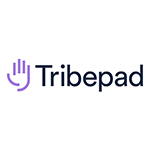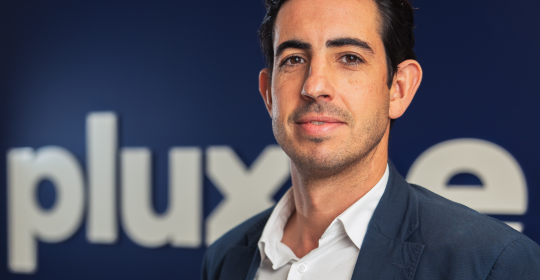Dean started his career with Plusnet before leaving after their BT buyout, to create his own pastures new. Dean’s responsible for Tribepad’s strategic direction which, with Dean, always means upwards, forwards, fast.
It’s Dean’s mission to help the people around him grow, whether that’s Tribepad clients, team members, family, friends or people in the community who need a helping hand. https://tribepad.com/about-tribepad/
Job vacancies are at an all time high and unemployment a record low according to latest data. The unemployment rate fell to 3.7% between January and March of 2022, its lowest for almost 50 years, as job openings rose to a new high of 1.3 million. After an increasing number of people left their jobs during the pandemic, candidates are out there, and employers want them. Equality, diversity and inclusion are increasingly important. In theory having more people applying makes it easier to build oragnisations that are full of diverse group of employees with no bias in the hiring process.
Right now there is an opportunity to level up when it come to EDI. A pool of candidates who reflect the diverse society we live in should also make for a workforce who reflect that society. But often legacy systems and processes hold us back.
Commonly there is an instinct to gravitate towards people who are like us. But just because that’s the instinct does not mean that it’s right. We’re better than that. It’s imperative that we find new solutions and rewire working practices to be focused on equality. Reducing the impact of unconscious bias when hiring is one of the most powerful ways to increase diversity.
Good technology is often deemed to be an efficient way to recruit, cutting time and costs.A quality ATS will measure all your company’s key metrics, such as time to hire, retention rates, cost per hire and offer acceptance rates. Often gathering this insight is a hyper-intensive, time-consuming process without the right systems to support you - which is why many fail. But great technology is that which enables a business to operate in a way that enhances the experience for everyone, and lifts them into roles where they thrive. Data driven platforms support talent acquisition teams through training and technology to both spot biased recruitment practices and does something about them. So it’s not a case of getting through more applications but bringing the right people on board in fair ways.
One of the fairest ways of recruiting according to jobseekers would be blind applications. In fact 80% in the Stop The Bias research say this would be their preferred method. The reason is that candidates don’t trust diversity data. Coventry City Council wanted to improve diversity in their recruitment process. They saw a 117% increase in the number of Black, Asian and Minority Ethnic candidates from a number of measures. They found that the key to this success was the introduction of anonymous applications to reduce unconscious bias in the recruiting process. But that’s just one example of the techniques that organisations can use to increase confidence among applicants and reduce fear of discrimination and prejudice.
Less than a quarter of candidates (23.5%) trust that diversity information is being used for their benefit according to the Stop The Bias research. Key candidate concerns were age, disability, gender, race, being a parent and even accent. Simply collecting the data and information isn’t enough. It needs to be used in the right way. If it’s not, people won’t trust you.
Organisations that are more advanced in their data and technological maturity effectively utilise data - and turn it into insight. Rather than at the descriptive (basic reporting on what’s happening) or relative (linking reports to performance) stages, they move to analytic (questioning relationships between activity and business outcomes) and predictive (predicting the future at an HR and business level). This makes for a much more strategic approach that can shift the dial on important issues - such as EDI.
That trust is essential. With a high level of vacancies candidates can afford to be choosy, and have more leverage over pay, location and benefits than ever before. But they are also able to choose an organisation that ‘fits’ with them. For the first time in a many years, employers are having to battle for talent in an historically unprecedented competitive market. As well as wanting better work life balance and hybrid working, candidates want to work for an organisation that feels right and aligns with what is important to them. Values based recruitment has been around a while, but it’s only recently that we’ve seen such a shift to employees choosing their employers based on values and ethics, in what Gartner are referring to as the Great Reflection. Creating an Employee Value Proposition that reflects values is therefore essential to attracting the right people for your organistion. It’s about much more than a slogan on a boardroom wall, but infusing your business with a culture that really champions inclusivity at all levels.
Technology can’t solve everything by itself. But getting the right technology on board to help elevate your team’s EDI objectives can help enhance the talent management within your organisation and build a more inclusive workplace that reflects a diverse society.







